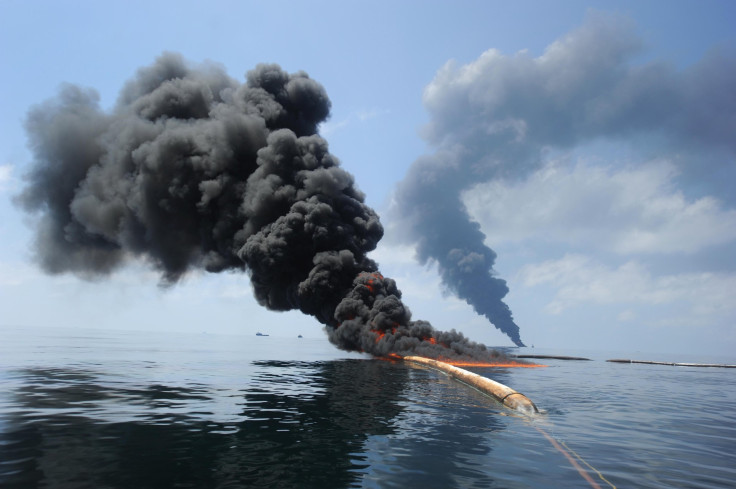Deepwater Drilling Set To Resume Near Site Of Fatal BP Oil Well Explosion In Gulf Of Mexico

Five years after a BP drilling project in the Gulf of Mexico caused the worst offshore oil spill in U.S. history, deep-water drilling near that same site is about to resume. Louisiana oil company LLOG Exploration Offshore is planning to drill into the Macondo reservoir by June, according to media reports.
LLOG Exploration Offshore’s permit to drill a new well at the site was approved April 13 by the Bureau of Safety and Environmental Enforcement. A sister agency, the Bureau of Ocean Energy Management, separately approved LLOG’s exploration plan last October after completing an environmental review, the Associated Press found in a review of federal records. Harper’s Magazine first reported the drilling plans late Tuesday.
The project comes as BP PLC and five Gulf Coast states are still grappling with the aftermath of the 2010 oil spill disaster. On April 20 that year, the Deepwater Horizon drilling rig owned by Transocean and hired by BP PLC experienced a massive blowout in the Macondo field. More than 100 million gallons of crude flowed from the well over a period of 87 days before the oil company and federal workers could cap it.
In Louisiana, the state that suffered the brunt of the pollution, the catastrophe continues to take an economic toll on business owners, self-employed fishermen and tourism operators, International Business Times previously reported. Oil-soaked marshes and barrier islands are vanishing because of oil contamination, outpacing efforts to restore and rebuild coastal ecosystems.
LLOG, a privately owned firm in Covington, Louisiana, will be the first company since the rig explosion to attempt to extract the same oil and gas reserves BP was pulling from beneath the Gulf of Mexico’s seafloor. Fowler, the vice president for deep-water projects at LLOG, said the firm was committed to avoiding another event like the BP well blowout. “LLOG staff keeps the memory of what happened … fresh in our minds throughout our operations, both planning and execution,” he told the AP.
The firm has successfully drilled eight wells at depths and pressures similar to those of the Macondo well, and it has drilled more than 50 wells in the Gulf since 2002, Fowler said. LLOG has studied investigations into the BP disaster and “ensured the lessons from those reports are accounted for in our design and well procedure,” he told the news organization.
The company’s Macondo venture could be subject to more stringent federal standards than BP was in 2010. Since the oil spill, the Obama administration has drafted a series of rules designed to prevent tragic explosions and increase rig safety.
The U.S. Interior Department in April proposed tighter safer requirements on blowout preventers, which are used to seal off undersea oil and gas wells in emergencies. The BP spill was caused in part by a malfunctioning blowout preventer. The agency previously adopted new regulations on drilling well casings and on the cementing of wells.
© Copyright IBTimes 2024. All rights reserved.





















